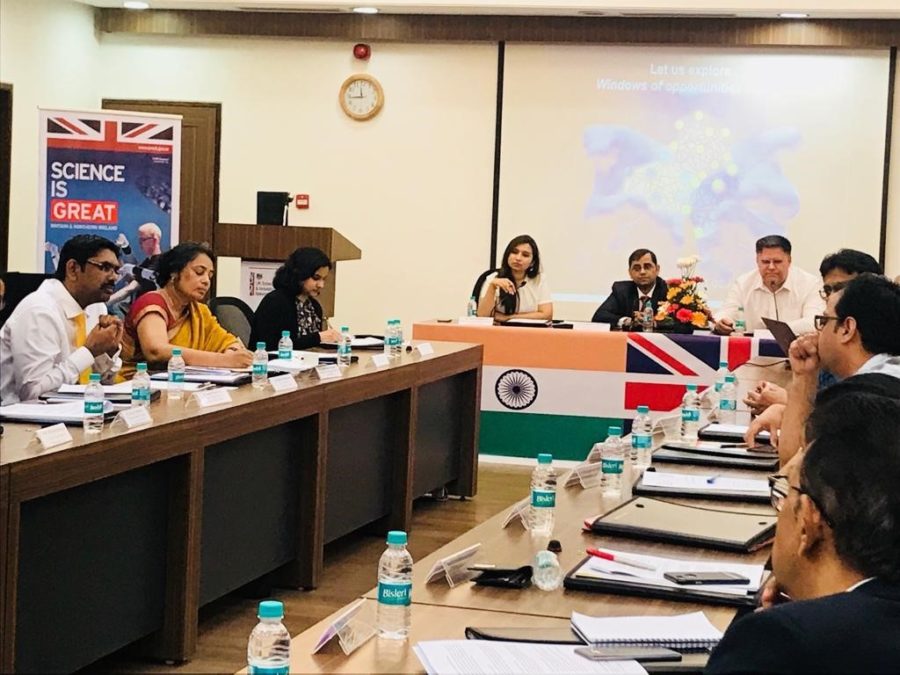Professor Graham Ball holds a chair in Bioinformatics at Nottingham Trent University and is Chief Scientific Officer at Intelligent OMICS Ltd, a company specialising in providing Artificial Intelligence and Machine Learning solutions to molecular biomedical problems. He has developed Insilico methods for the analysis of omics data, facilitating the discovery of diagnostic biomarkers, the modelling of pathways targeted by drugs and the molecular drivers of phenotype. He is a Gian fellow and has run a number of practical courses in India.
Currently we are at the start of a biomedical revolution. Since the sequencing of the human genome, scientists have the ability to characterise biological systems at the molecular level. This has allowed development of technologies allowing the sequencing of DNA, the characterisation and measurement of the resulting molecular messages (the mRNA transcriptome) and the resulting proteins created by these messages (the proteome). In a biomedical setting this has initiated the ability to characterise diseases at the genetic or molecular level, giving us the potential to develop new diagnostics, to personalise medicine, or to understand the molecular basis of disease.
The concept of personalised medicine is not a new one. In 1892 the renowned physician and founder of Johns Hopkins, Sir William Ostler said “If it were not for the great variability among individuals, Medicine might as well be a science and not an art.” The basis of this comment was that medicine was observational but did not often determine causality. The paradigm shift brought in by the advances in Genomics means we now have the potential to identify the molecular causality of disease.
This revolution does not come without challenges.
One of the key challenges is the complexity of the omics data generated. The human genome has around 30 billion base pairs coding for an estimated 30 thousand genes as well as other complex regulatory factors. These have been estimated to code for up to 200 thousand proteins. This results in the need for computational methods that will prevent false discovery through cross validation; cope with the inherent non-linearity of biological data; provide generalised solutions for a broader population, and have suitable computational efficiency so as to be able to undertake rapid analysis for such complex data.
Globally, billions of dollars have been spent on the generation of petabytes of molecular data but little consideration has been given to the development of appropriate methods to analyse this data. There seems to have existed the belief that a $1million data set can be analysed by a $500 piece of software. Such low value approaches are very often not appropriate and lead to false discovery or the belief that the data is of low quality. The ideal approach is non linear and employs multiple layers of cross validation.
India’s particular need for personalised medicine opens doors to working jointly to address this challenge. When one considers the fact that a majority of drugs available in the country have been developed for a Caucasian population, it is easy to see how the application of western drugs to a south Asian population, may well result in, resistance at best, and adverse side effects at worst. If, however, the molecular basis of disease is understood for a south Asian population, there is potential for prediction of response to therapy (with so called companion diagnostics), for the repurposing of drugs targeting a south Asian population, or even the development of population specific drug solutions.
A recent workshop organised by the Science & Innovation Network India and Indian Institute of Technology Bombay (IITB) brought together leading groups from India and the UK to discuss the development of a strategy for an India-UK precision medicine initiative. This was a highly productive, enthusiastic, and extremely well attended discussion, that identified the need for cross country collaborations. This activity was the most recent in a number of SIN and Department of Biotechnology supported initiatives bringing relevant UK and Indian scientists together. The outcome of the workshop was an overwhelming agreement to move forward.
As another part of this event, a joint 4 day training event was run between UK (NTU) and India (IITB) entitled Big Data, Bioinformatics and Proteomics. This was attended by over 100 post graduate and doctoral students from a number of institutions. Generation and analysis of proteomics data were discussed, including from practical methodological, and industrial perspectives. The workshop was well received and as ever (from an audience of Indian students) the enthusiasm and ability of the attendees were excellent. Further collaborative work with the IITB proteomics group is ongoing.
India’s burgeoning biotechnology sector, a thriving culture of start-ups, a large skilled workforce, and a refreshing openness to embrace new ideas, all make India, ‘the place to be’. With many Indian companies developing Precision medicine research activity, especially in response to the new challenges they are facing, the time is just right for UK to promote its strengths in molecular profiling and AI solutions. A fantastic example of this strength is the, rapid Insilico (computer-based) screening for billions of molecular combinations that presents a solution at a much lower cost than the conventional drug library approach. With Indian Pharmaceutical companies becoming less conservative and more open to such new technologies, we are entering a most exciting time in the bilateral relationship across this area.

